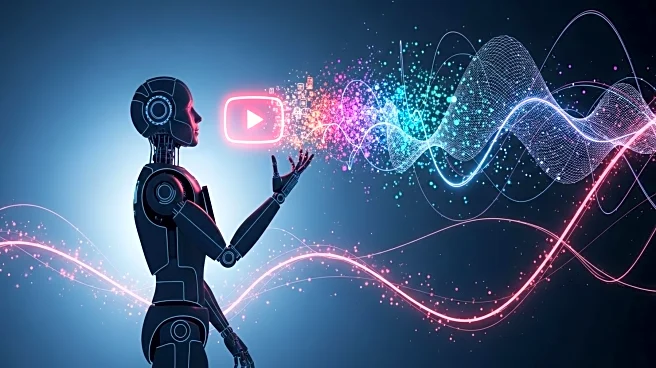What's Happening?
AI companies have reportedly downloaded over 15.8 million YouTube videos from more than 2 million channels to train AI products, often without permission. These videos, including nearly 1 million how-to videos, are used in at least 13 different data sets distributed by tech companies, universities, and research organizations. The videos are anonymized, lacking titles and creator names, and are extracted using unique identifiers. This practice violates YouTube's terms of service, yet the platform has not taken significant action to prevent it. The legality of using copyrighted videos for AI training is currently debated in ongoing lawsuits, with tech companies arguing it constitutes 'fair use'.
Why It's Important?
The unauthorized use of YouTube videos for AI training poses significant challenges for content creators, potentially undermining their motivation to share expertise online. As AI-generated content competes with human-made videos, creators may face reduced visibility and revenue. This development could lead to a shift in the online publishing landscape, where AI-generated videos overshadow fact-checked, expert-produced content. The broader implications include ethical concerns over copyright infringement and the potential for AI tools to produce inaccurate or misleading content, affecting public trust in online information.
What's Next?
Legal battles are expected to continue as courts determine whether AI training constitutes copyright infringement. Content creators may seek stronger protections and clearer guidelines to safeguard their work. Tech companies might face increased scrutiny and pressure to adhere to copyright laws, potentially leading to changes in how AI models are trained. The industry may also see a push for more transparent practices and ethical standards in AI development.
Beyond the Headlines
The rise of AI-generated content could lead to a cultural shift in how information is consumed and valued. As AI tools become more sophisticated, they may challenge traditional notions of creativity and authorship, prompting discussions on the ethical use of technology in media production. The potential for AI to generate personalized content raises questions about privacy and the manipulation of public opinion.










